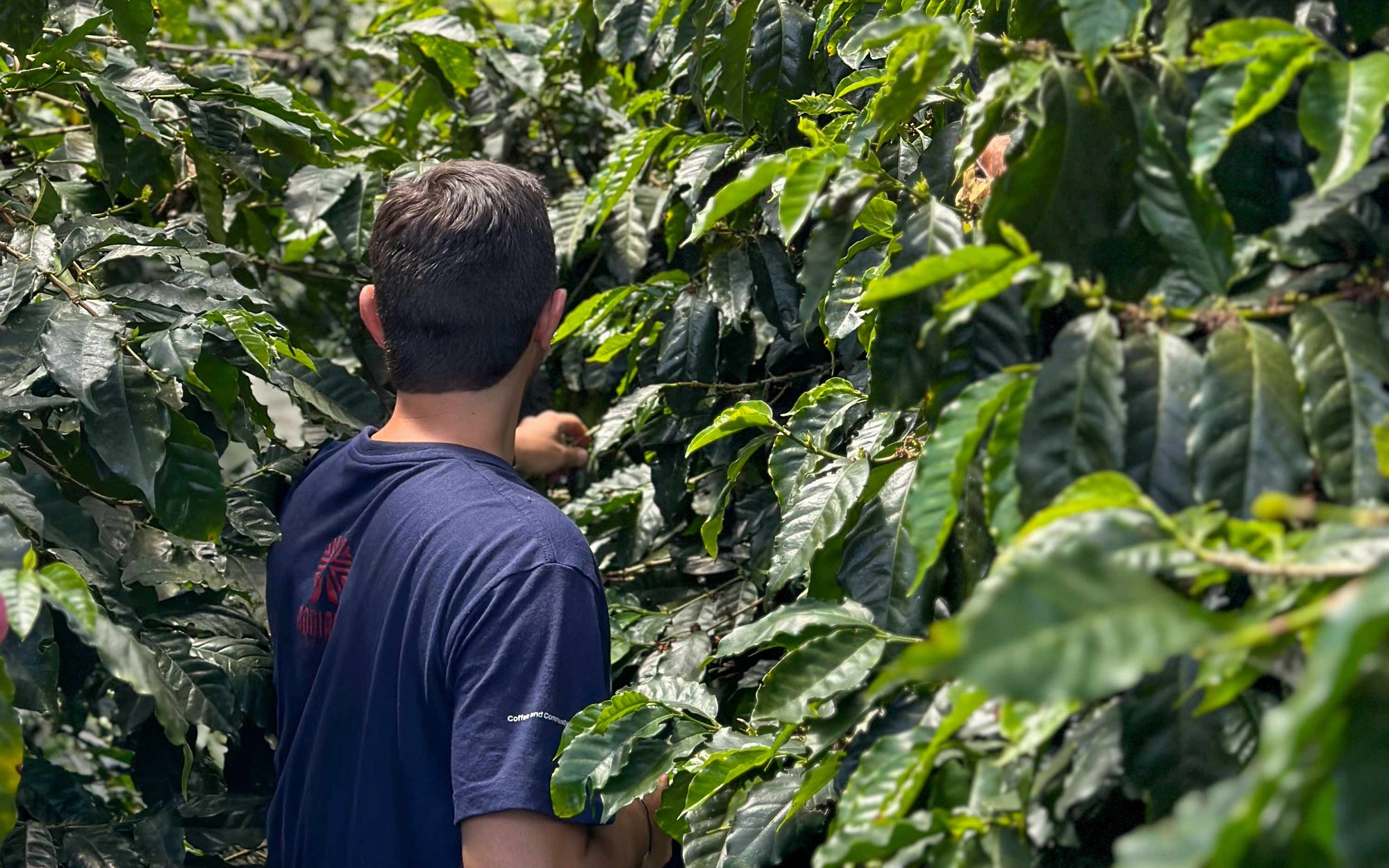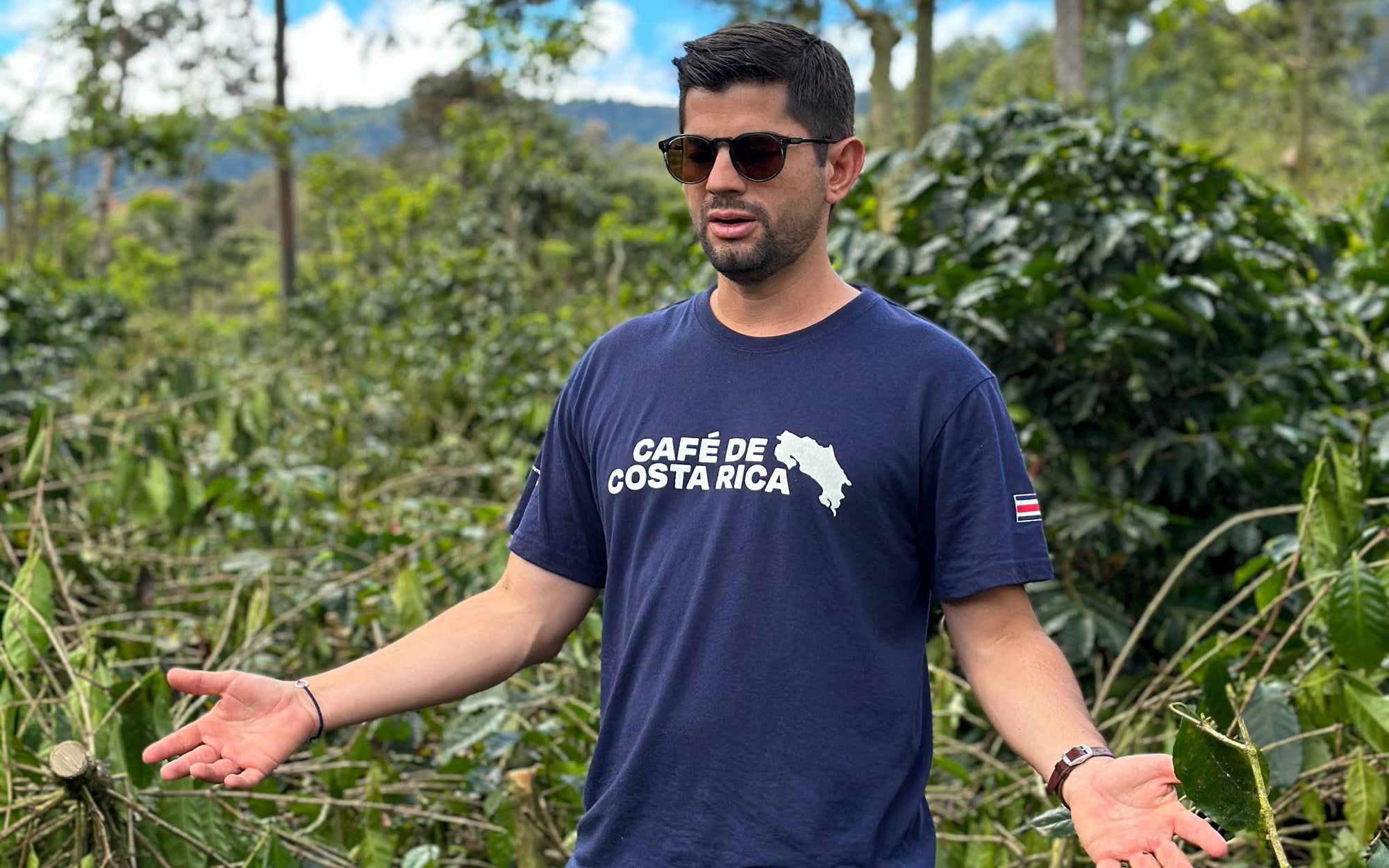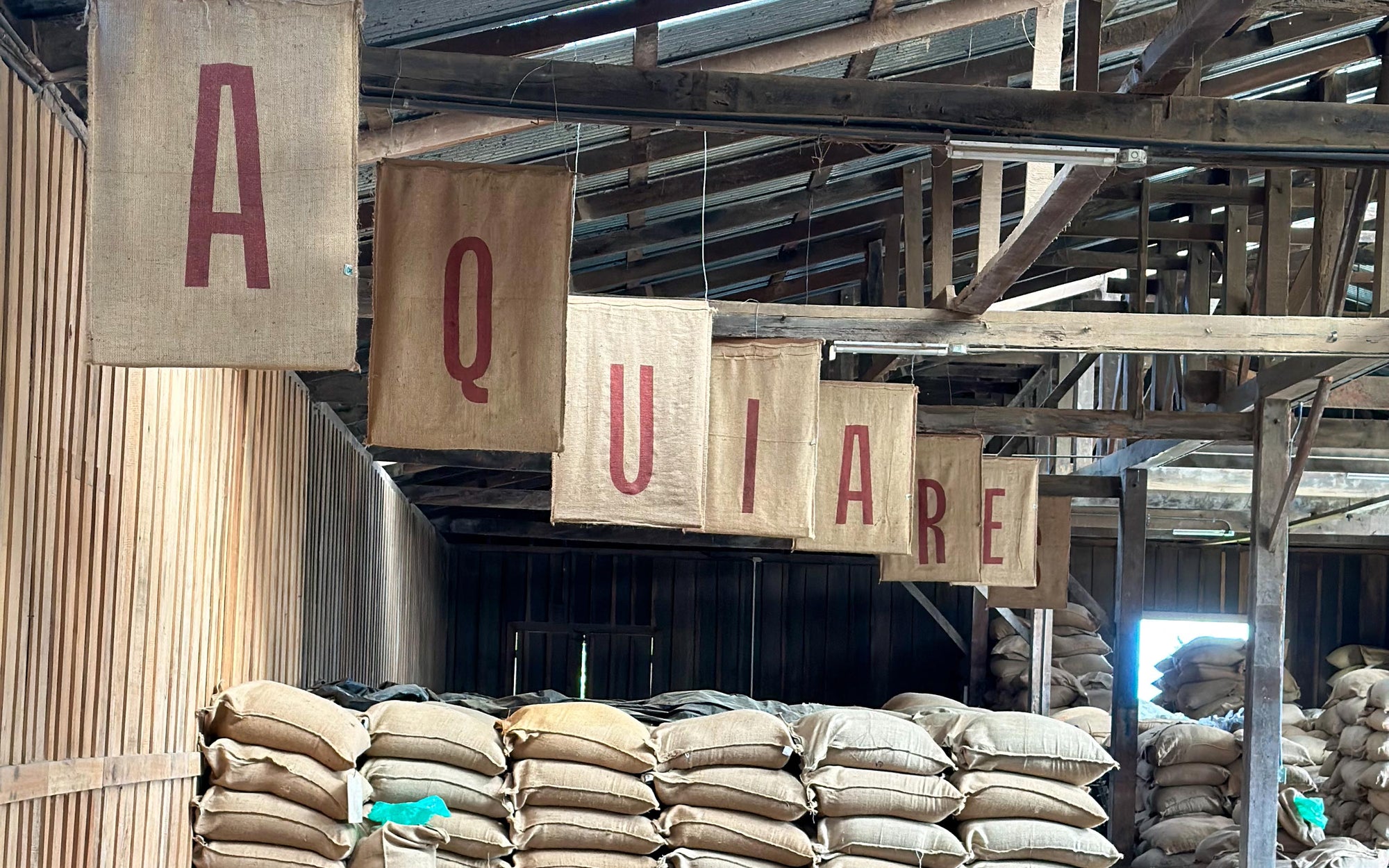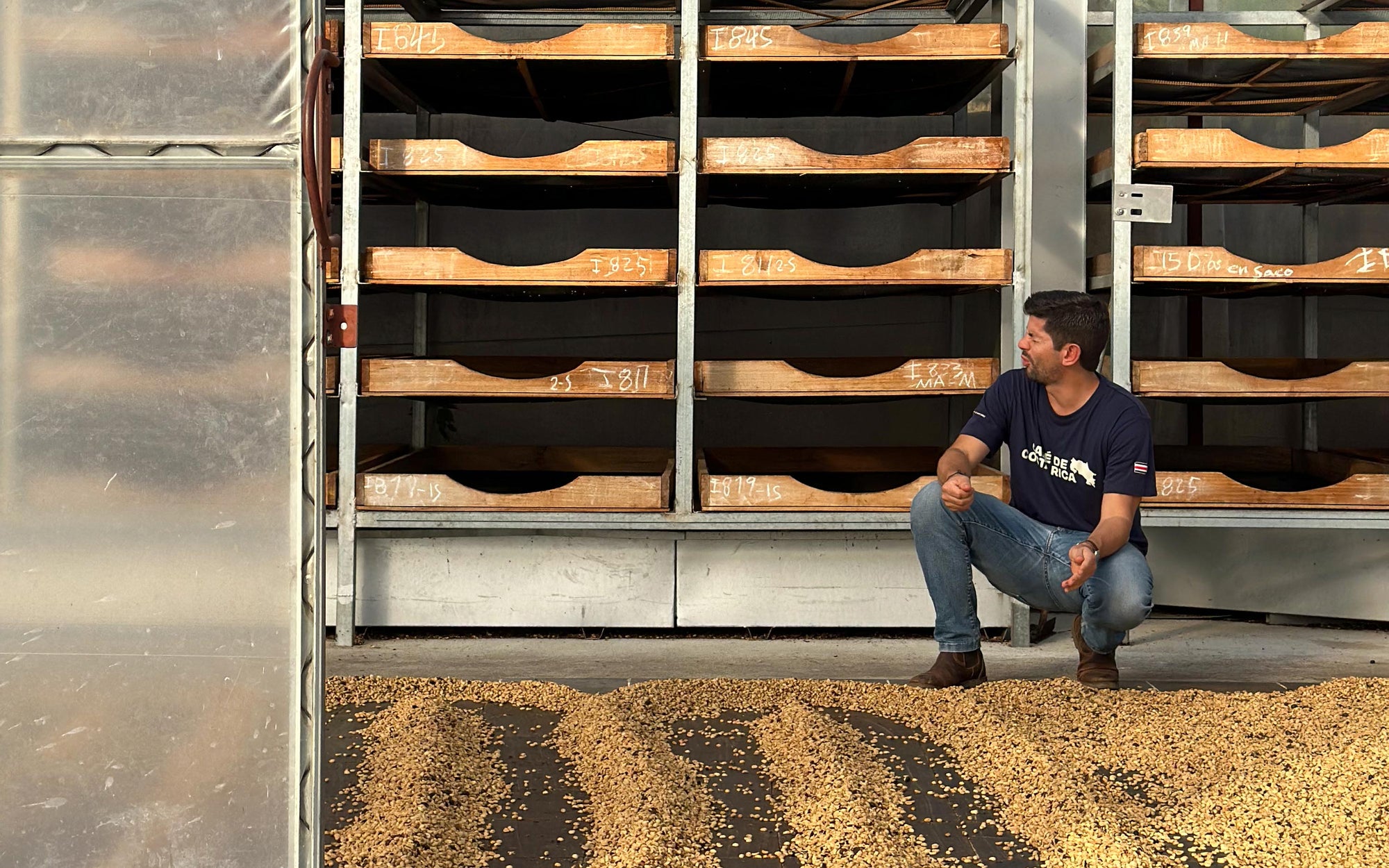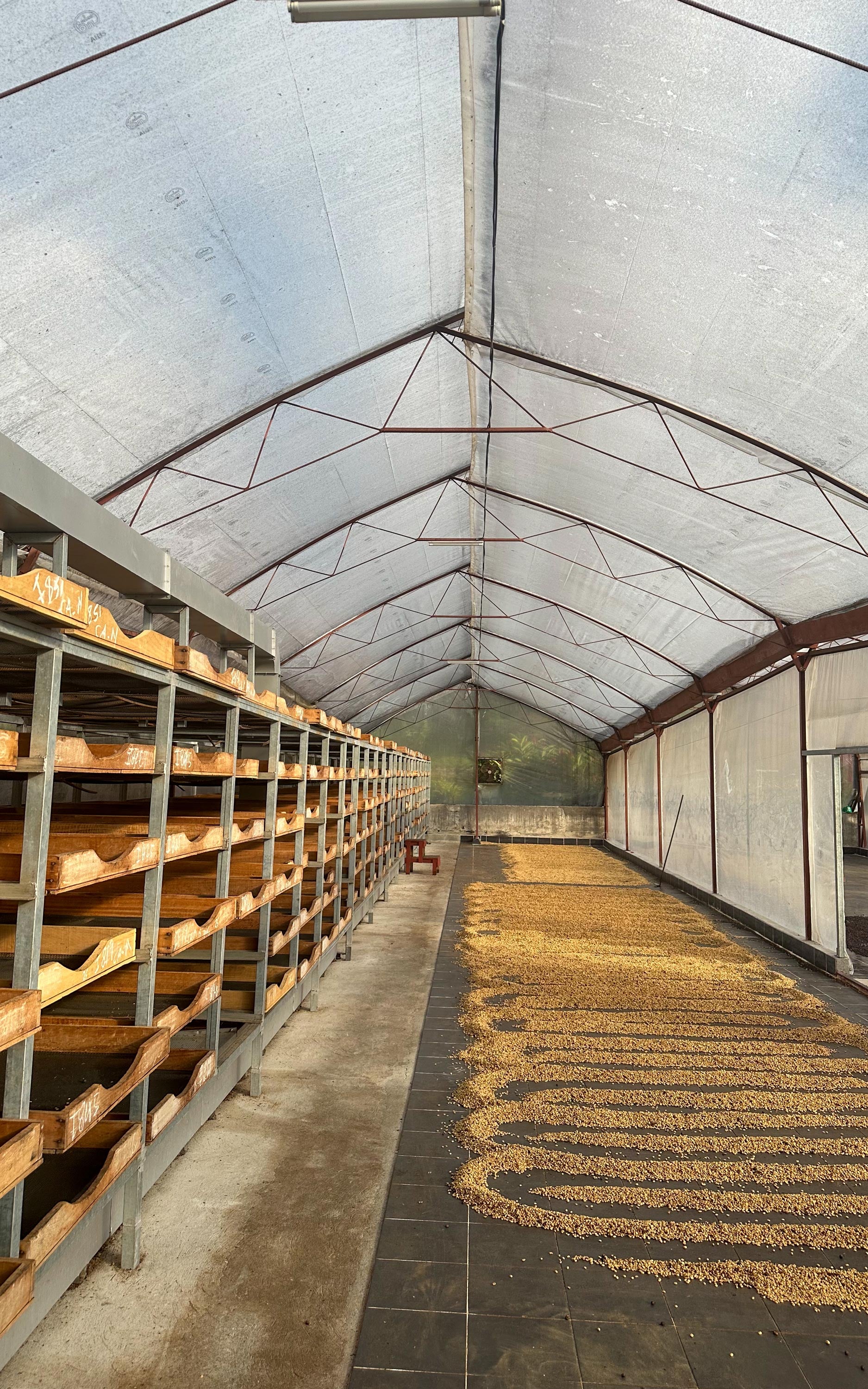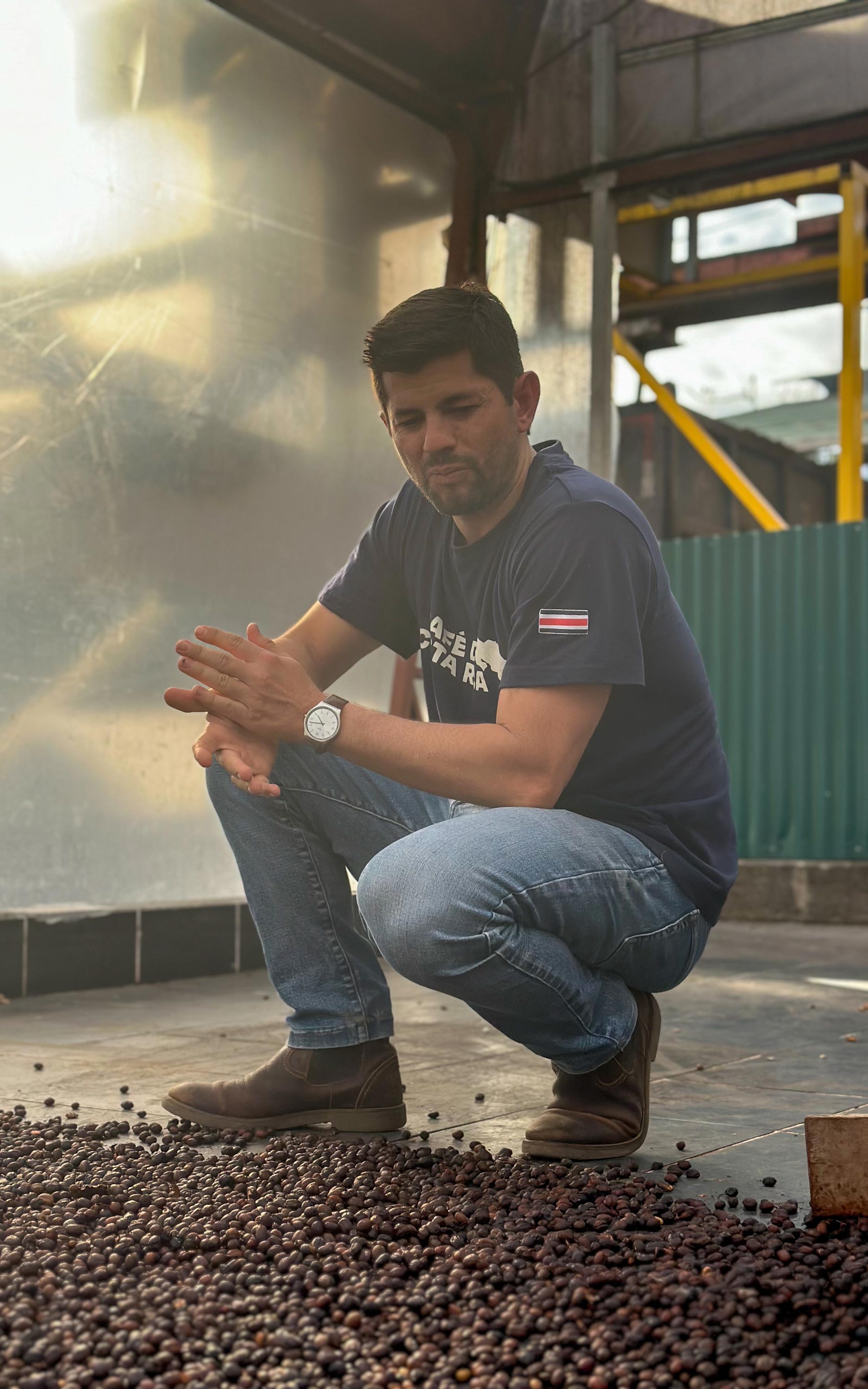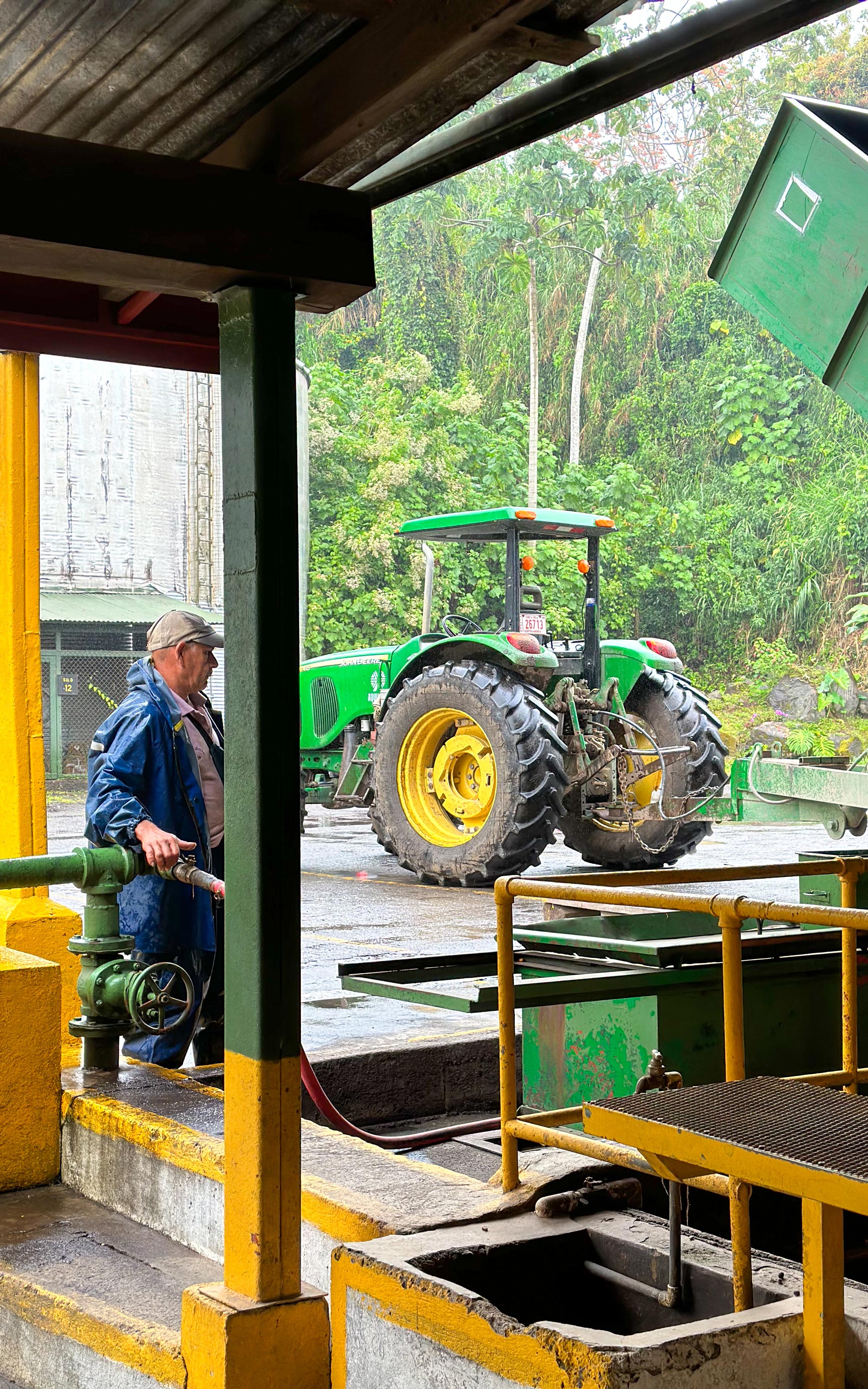Nine Years of Collaboration: Reflecting on Diego Robelo's Journey with Aquiares
Diego Robelo's nine-year partnership with us marks a journey filled with growth, resilience, and dedication. In a recent Zoom catch-up, Diego shared insights into Aquiares, shedding light on the passionate individuals driving its success, the farm's adaptive strategies, and the unwavering motivation fueling its pursuit of excellence in the global coffee industry.
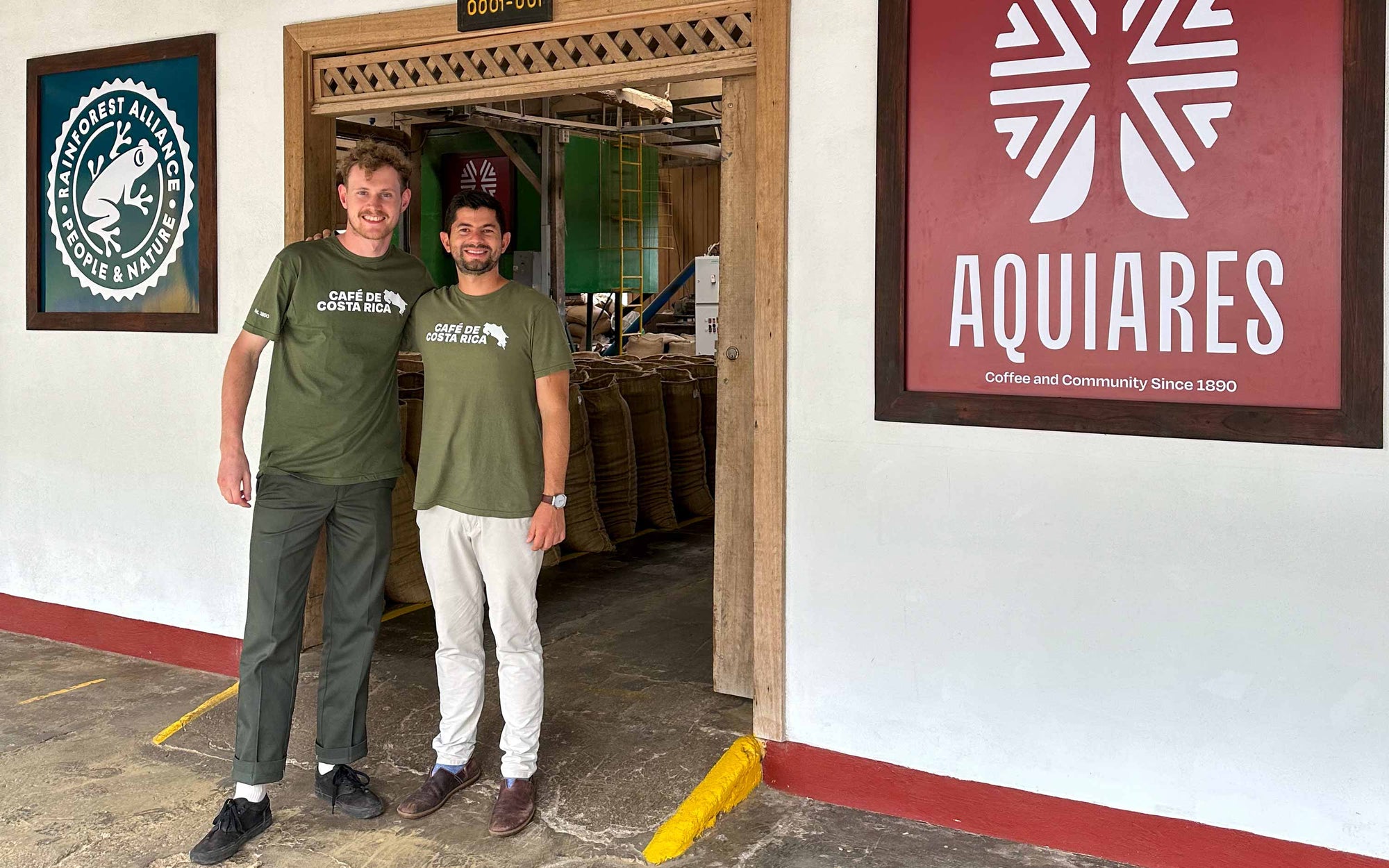

Meet the Heart and Soul of Aquiares: Stories of Dedication, Heritage, and Leadership
The backbone of Aquiares is its people, many of whom have been there for a long time and also many who share heritage, with parents and grandparents. One example is the mill manager Armando Jara, whose father used to be the Agronomist and retired after 44 harvests. Rafael Acuña the financial manager has also been at Aquiares for 40 plus years, he started as a farm hand, working in the field, and he’s pretty much done every job there is on the farm, then he started an administrative role as a cashier, then an accountant, then the head accountant and now he’s the financial manager.
He’s the nicest dude, he’s got this huge moustache, and he’s full of jokes, he never gets angry, also he’s this great balance for me because he’s always thinking of the risks whereas I’m always keen to take a chance. It’s really hard to mention everyone because there are so many amazing people involved!
Navigating Climate Chaos: Aquiares' Approach to Weather Challenges and Climate Change
We feel like we’re getting slammed by a different curve ball every year when it comes to weather, and what does that mean we’ll be facing in ten or twenty years. We have all this data thanks to my dad, he was much more of an engineer than me, thanks to him we have a 37 year record of daily rainfall. So when you have a graph and you can see changes from year to year compared to the 37 year average you can really see how crazy things are. Our approach when it comes to climate change is adaptation, mitigation and reducing carbon towards a goal of net zero.
In the past the farm was just coffee, you could be on one side of the farm and you could literally see to the other side, there was nothing blocking your view. Now, it’s a freaking forest, you can’t see more than a hundred metres in front of you, and that’s a big change. We’ve tried to make Aquiares a bit of a research hub, having all these varietal gardens and making these different alliances with World Coffee Research or working with CATIE (Tropical Agricultural Research and Higher Education Centre), it becomes really important. In essence the approach is to open the doors of your farm to whoever wants to come see it and to take advice and collaborate wherever possible. So there’s adaptation with doing this research, doing things like finding the best varietals, mitigation in things like growing shade crops and then the carbon emissions lowering, well, that’s really just about good karma!
So here I am at home with my kid in 2022 and I’ve been working at Aquiares since 2013, so just short of a decade, I’m 34 and I think there is still a lot to be done and so many exciting challenges ahead. Every time I think about it, I think, I’m all in.
Legacy and Leadership: The Evolution of Aquiares from Colonial Estate to Coffee Powerhouse
I love it, there’s a huge responsibility of course, Aquiares is a farm but it’s also this whole community and it has such a history, and there are people in its history who have allowed it to evolve and transcend from this sort of very old school, colonial estate from British descent with the Lindo brothers in 1890 to being this coffee powerhouse, exporting lots of coffee, with its own mill. The Figueres family who took over the farm in 1949 helped grow it from 200 to 600 hectares of coffee.
They expanded the farm and invested a lot in the mill, they were leaders in pushing wet fermentation, and producing wet processed coffee at a time when naturally processed coffees were prevalent. Then of course another key person in the farm's history is my father who took over in the 90s, he took over this still pretty old school estate where people didn’t own their homes, and if you lost your job, you lost your home. My father had worked as a politician in Nicaragua and had all of this frustration having failed to turn Nicaragua into a Democracy, it fell into the hands of the Sandinistas who are still the current dictators. So he saw Aquiares as, the job he was going to retire in, he took it on when he was 62 and worked it until he was 80, he did all of these transformative things, turning it into a real community, turning it from a more extractional farm into an agroforestry model, trying to sell high quality coffee more directly.
He was a huge part of making the farm where it is today, developing a really good team and a really good organisation. Empowering people from the town to take on jobs as accountants, or engineers or agricultural engineers. He built this team of people who were really looking up to him and developed it into this symbiotic relationship between the town, the community and the farm and it handed me a really solid foundation to go crazy. I’m working with people that are happy, are loyal and have a purpose. It’s a big responsibility but it’s a great opportunity, so when i was at uni and all my classmates were deciding what to do and going to employer fairs and deciding what to do and I wasn’t sure what I should do, my gut was telling me to stay with the family business. There were moments where I was very well aware and committed to the great opportunity that I had with Aquiares, it was clear to me that I needed to go at it full throttle.
